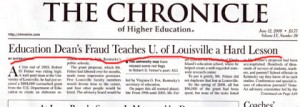A backdoor approach to the merger of the AFT and NEA
By Rich Gibson
Since the rank and file delegates to the 1998 convention of the National Education Association rejected a leadership scheme to merge the 2 million + member NEA with the American Federation of Teachers and its parent body, the AFL-CIO, NEA bosses have worked hard to win a merger through the back door.
The run-up and result of the 1998 vote is described here http://clogic.eserver.org/2-1/gibson.html
From 1998 on, NEA executives struggled for a merger in other ways, urging state affiliates to join the state AFL-CIO, locals to join county AFL-CIO affiliates, and so on.
In 2006, Reg Weaver, then the NEA president, hugged AFL-CIO president John Sweeney in the Hotel Del Coronado in San Diego, favorite watering spot of George W. Bush, and declared that the two had reached an agreement that would spur more merger efforts. Sweeney called it the “Most Important Thing in the History of the Labor Movement Since the Merger of the AFL-CIO.” That silly comment, and the hug of two truly bulbous but very well dressed old men, is described in Substance, here: http://www.substancenews.com/content/view/352/81/.
Why would the growing and relatively strong NEA want to merge with the moribund, corrupt, sold out, quisling, racist, AFL-CIO which loses tens of thousand every month and does less than nothing, actually employing violence against militant workers who fight concessions?
Well, the most common excuse: Solidarity.
That’s a hollow claim, a lie. The AFL-CIO won’t offer solidarity with the rank and file members of NEA. To the contrary, NEA members will simply add another layer of enemies, AFL-CIO hacks, and redouble that problem with the fact that NEA will have to pay dues, subsidize, the rot of the AFL-CIO.
The AFL-CIO and its affiliates do not unite workers. They divide us–by job, by race, by industry, even by views on taxation–the public sector vs the private.
Not a single top leader of any AFL union (or the NEA for that matter) believes in the reason most people think they join unions in the first place: the contradictory interests of workers and bosses.
Instead, labor mis-leaders believe in corporate-state unionism, that is, the unity of labor bosses, government, and corporate heads, “in the national interest.” That’s why you see the UAW losing a million members and doing nothing whatsoever, other than break the strikes of their own members, in order to “save the auto industry.” We see the results of that now.
The entire AFL-CIO (split about in two by opportunist competitors who formed the Change to Win coalition–from the most corrupt unions in the USA like the Teamsters–about three years ago) has refused to fight concessions and labor retreats, instead organized the decay and ruin of industrial work in the US, while its guiding union, the American Federation of Teachers, organized the wreckage of urban education in the US, supports merit pay and national standards in education.
So, really, why the NEA push to merge with the AFL-CIO?
It is probably because some NEA leaders at the top, like NEA boss Dennis Van Roekel, envision jobs for life in a merged body that might be able to draw back CTW as well. This would apply to local NEA leaders too, being promised perks from on high and yet another meeting to attend in a fancy resort, far from the classroom, topped off by a new prestigious title. In exchange, the labor aristocrats can offer elites greater control over educators and schooling in general. The education agenda is a war agenda. Arne Duncan recently described the Detroit schools as a “Homeland Security issue.” Obama, the demagogue, sits on top of a full-blown corporate state promising perpetual war and lost, or meaningless jobs. Such a nation will make seemingly odd demands on schools: high stakes exams, a national curricula, militarization, merit pay, more inequality, racism, sexism, irrationalism taught as truth, nationalism over all, etc.
For the NEA rank and file, the AFL-CIO is just another link in the handcuffs.
But for AFL-CIO bosses, the millions of dollars that would be collected from educators’ dues could stave off bankruptcy for a bit.
We can expect to hear more merger talk at the upcoming NEA representative assembly in San Diego in early July. We surely will not hear the sensible cry: Organize a general strike to win taxing the rich! Nor, When They Say Cutback, We Say Fightback! Nor, Concessions Don’t Save Jobs! Not unless that comes from some rule breakers in the rank and file who have the good sense to set aside the prison of normalcy, storm the podium, grab a microphone, and say it. Perhaps to lots of cheers. Remember to hold up your web site.

 Follow
Follow